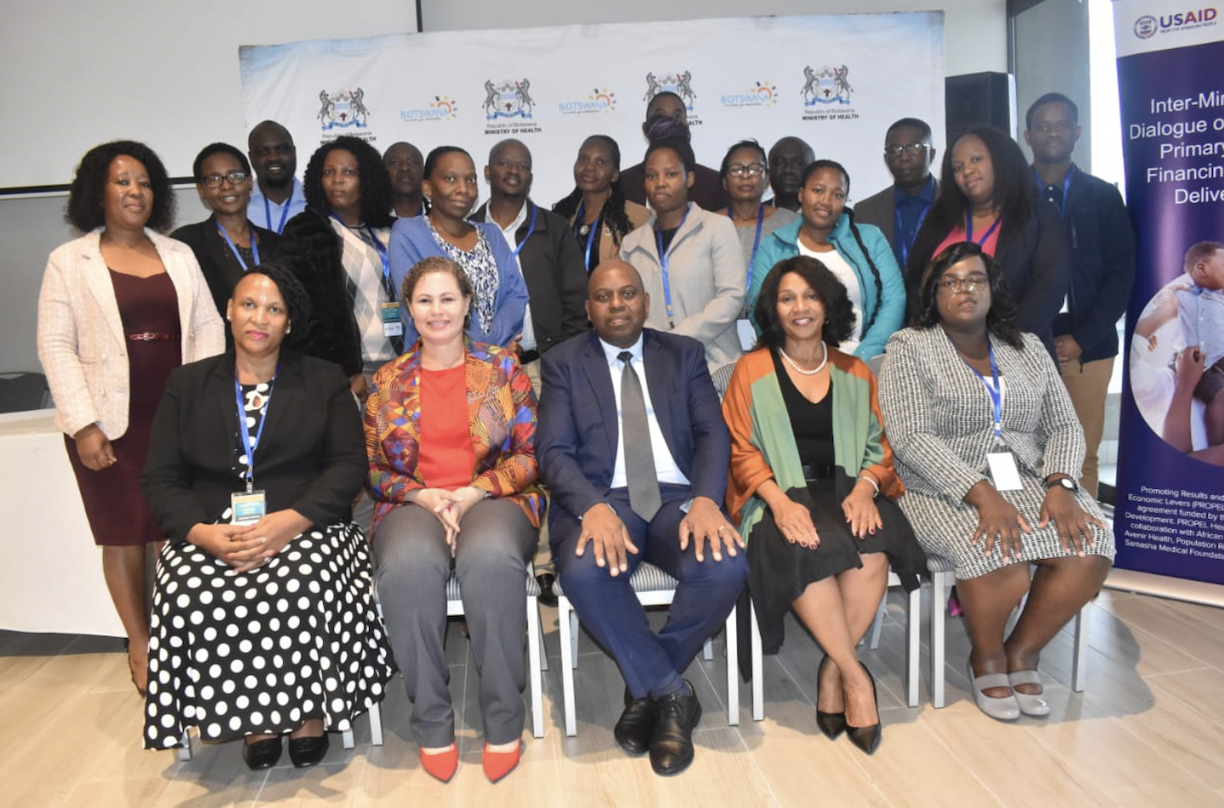Since gaining independence in 1966, Botswana’s health financing (HF) system has evolved, with a focus on equitable access to health care. Health policy has been shaped through National Development Plans, emphasizing the role of health in socioeconomic development. The first national health policy, introduced in 1995, prioritized primary health care, decentralization and community involvement. As of 2021, public sector financing accounts for 76.5% of current health expenditure. Despite these efforts, Botswana’s health system faces HF sustainability challenges.[1]
Barriers to sustainable financing
Botswana’s HF model faces several barriers that hinder sustainable financing.
- Dependence on diamond revenues: Public finance in Botswana relies heavily on diamond exports makes HF vulnerable to fluctuations in global commodity markets, impacting budget stability and service quality
- Inefficient resource allocation: Centralization and urban-rural disparities contribute to inefficiencies in the health system, limiting equitable access to health care
- Rising health care costs: Noncommunicable diseases like diabetes and cancer, along with a high HIV/AIDS burden, are increasing health care costs and straining the existing budget
Moving universal health coverage forwards
To move towards universal health coverage (UHC), Botswana is working on different strategies.
- Diversifying HF sources: To reduce the eliance on diamond revenues, Botswana is exploring alternative funding sources for health, such as increasing health taxes on tobacco and alcohol and earmarking for health
- Strengthening public-private partnerships: Botswana is actively promoting public-private partnerships (PPPs). PPPs aim to harness private sector expertise and resources for infrastructure investments and service delivery
- Improving efficiency in health spending: Reforms focused on improving the efficiency of public health care spending have also been prioritized. This includes better financial management, decentralizing health services to regional and district levels and enhancing accountability mechanisms
- Expanding access to primary health care: Botswana recognizes that strengthening primary health care (PHC) is essential to advancing UHC. The government is investing in expanding access to PHC, particularly in rural and underserved areas, to improve prevention and early treatment of diseases
References
[1] World Health Organization, Global Health Expenditure Database, Health Expenditure Profile (choose country)



